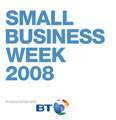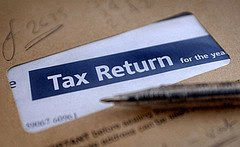 In the Pre Budget Report delivered by the Chancellor Alistair Darling on 24 November 2008, he said “at this time of real difficulty for many small businesses, they need ‘time to pay’ when meeting their tax bills. I intend to meet this need”.
In the Pre Budget Report delivered by the Chancellor Alistair Darling on 24 November 2008, he said “at this time of real difficulty for many small businesses, they need ‘time to pay’ when meeting their tax bills. I intend to meet this need”.This means that HMRC must now enable firms facing difficulties to spread their tax on a timetable they can afford.
This will apply to all business taxes. VAT, corporation tax, income tax and national insurance. And not for just for three to six months but for as long as they need.”
So How Does This Affect Us?
This now means that many businesses, who are struggling financially, do not have to get into difficulties paying their tax or VAT liabilities.
If you are going to struggle with your cash flow and have some payments to make to HMRC then make use of this service – now.
They will not make any surcharges for late payment as they would normally do, but there will, of course, be an interest charge.
The Business Payment Support Service however only applies to amounts that are about to become due, or are just overdue. They cannot deal with outstanding overdue payments where HMRC have already contacted you about payment. There are separate provisions in place to deal with the longer term debts, but, again, these are considerably improved on the original arrangements.
More details are available at: http://www.hmrc.gov.uk/pbr2008/business-payment.htm
What Do I Do?
Call 0845 302 1435 and talk about your circumstances to one of the advisors. They promise to give you a decision in about 10 minutes for straight forward cases.
What Do I Need To Do To Prepare?
You do need to do a little homework first. They will need your tax reference number, details of the amounts that you will have trouble paying and, in their words, “basic details of your businesses income and outgoings”. This really means you need to have done at least a basic cash flow forecast.
Before you call, spend a bit of time forecasting your cash flow out as far as you need to, so you can see with a good margin how quickly you will be able to repay the amounts due. There is no point in agreeing a deal that you cannot achieve, so spend some time beforehand getting to grips with where you are.
The Business Payment Support Service do have a mandate to resolve all calls within 4 days, although their aim is to deal with them when you call and put in place a ‘time to pay’ deal. It is critical that you are prepared before you call as this will give you the best chance of getting a deal that works for you.































